In this edition of Sliced, the 3D Printing Industry news digest, we cover the latest business developments, partnerships, and acquisitions in the additive manufacturing sector.
Today’s edition features upcoming launches at the 2022 AMUG Conference, new 3D printing partnerships, business updates, new additive manufacturing materials, and several novel 3D printing applications, including a futuristic sunflower village and a successful life-saving 3D printed beak surgery.
Read on for the most recent updates from B9Creations, Tethon 3D, the Danish AM Hub, Braskem, AME-3D, Sentinel, MTC, Photocentric, Nexa3D, Fictiv and more.
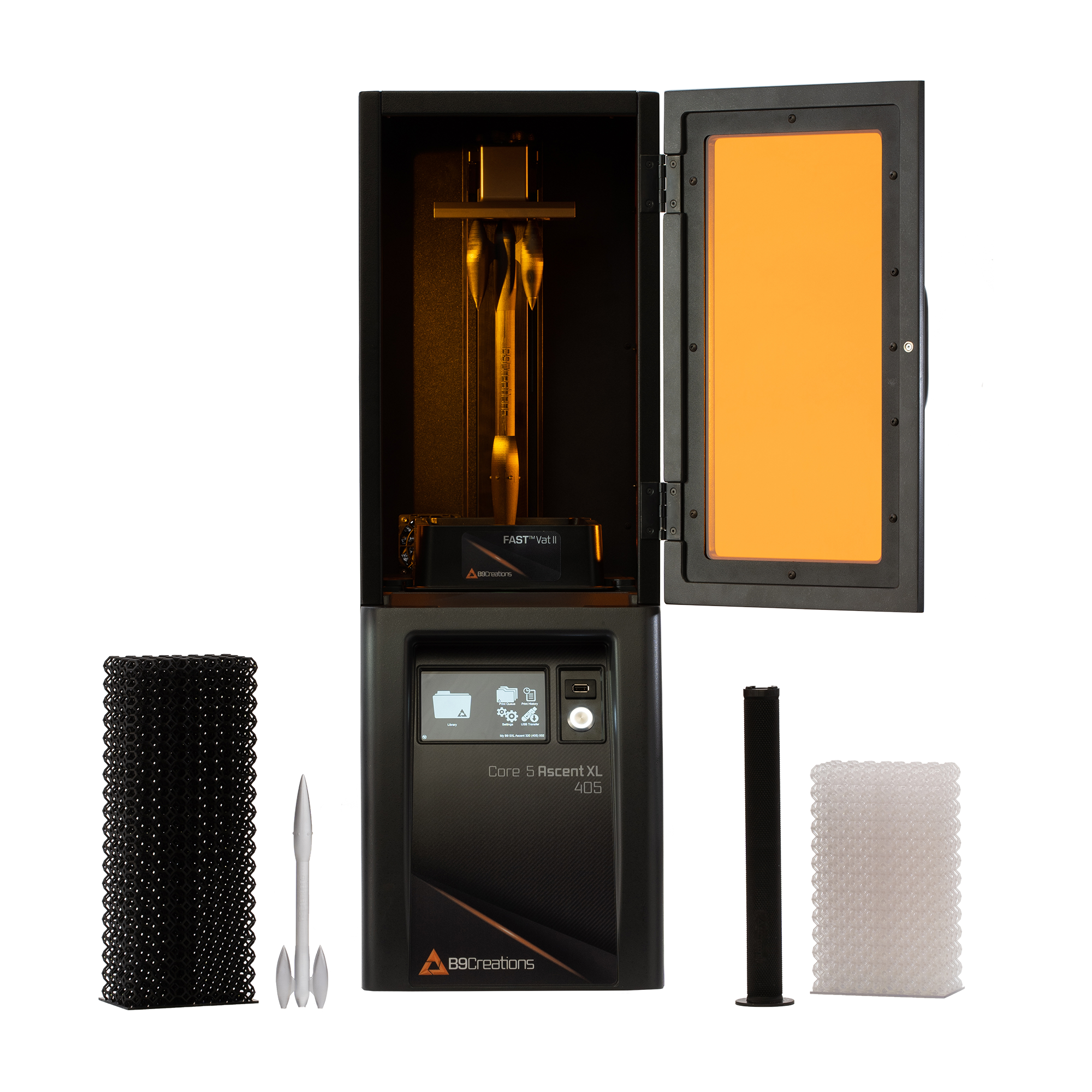
The AMUG Conference 2022
The Additive Manufacturing Users Group (AMUG) Conference is returning next week in Chicago between 3rd-7th April, and several firms have released announcements leading up to the event. 3D Printing Industry will be in attendance, so get in touch to say hello during the conference.
Resin 3D printer manufacturer B9Creations will unveil its large-format customizable 3D printer platform, the B9 Core 5 Ascent Series, at the AMUG Conference. Available in five configurations, the platform is the firm’s largest to date and is driven by its patent-pending FAST technology, which is capable of delivering volume production and resolutions finer than 25µm.
Users are able to customize the build volume, resolution, accuracy, materials, software, regulatory standards, and application of the platform, and can even choose their B9 Expert Team. The company will give a live 3D printing demo of the B9 Core 5 Ascent Series during the conference at its booth (23).
The AMUG Conference will also see KIMYA, the additive manufacturing subsidiary of French printing and coating firm ARMOR, announce an exclusive marketing partnership with 3D printing ceramics manufacturer NANOE. The partnership will see NANOE’s Zetamix filaments enter the North American market via KIMYA’s network in the region.
“We are delighted to be expanding our distribution channels in strategic regions like North America thanks to our partner KIMYA, with which we share a vision and the know-how in technical materials for the production of finished parts,” said Guillaume de Calan, Co-founder of NANOE. “We are fully confident in its ability to represent our filament range in this market and to help us extend the use of ceramic and metallic additive manufacturing on the international stage.”
Ceramic 3D printing specialist Tethon 3D will also be showcasing its new UV resin at the AMUG Conference, developed in partnership with global chemical firm Showa Denko KK. The high purity alumina material is claimed to be loaded 25 percent higher than other industry competitors, with a ceramic loading of over 75 percent by volume and 90 percent by weight. Tethon 3D will be showing parts alumina parts made using the resin at its booth (45) at the conference.
“It had been a pleasure working with the Showa Denko team,” said Trent Allen, CEO of Tethon 3D. “Tethon’s unmatched additive experience based around filled UV resins coupled with Showa Denko’s decades of experience in the inorganics, ceramics, and chemical sectors will revolutionize ceramic additive manufacturing. Some ceramic additive solutions have issues with shrinkage which limits features sizes and often creates unwanted warpage.
“This material and partnership set a new standard around material properties and reflects the original intent of the ceramic additive manufacturing industry.”
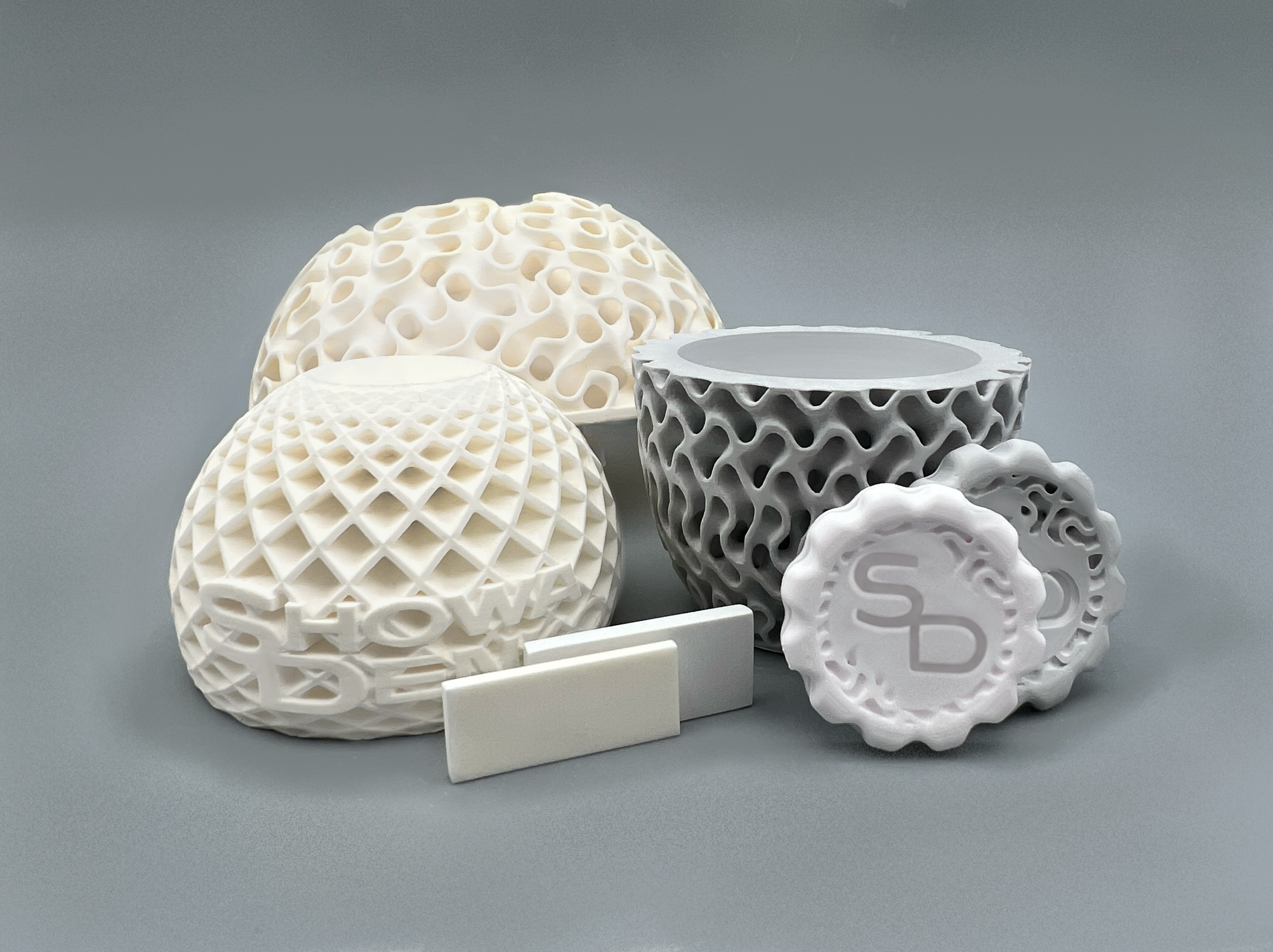
New 3D printing partnerships from AME-3D, COBOD, Wurth, Photocentric, Nexa3D, MTC, and 3D Systems
Kicking off this week’s partnership news is industrial 3D printing service provider AME-3D, which has invested in two Uniontech RSPro SLA industrial 3D printers from Europac3D. The new machines will expand the firm’s existing capabilities within the SLA and SLS service sectors, bolstering both the quality and size of parts it can produce.
AME-3D has installed an RSPro 450 and RSPro 800 which are both equipped with a granite recoating platform to improve machine stability in order to produce high-quality sidewall and detail on SLA components. The machines also have an open-source resin policy, and in AME-3D’s case the RSPro 450 can run Accura Xtreme Grey to continue to supply its existing customer base with parts made from the material, and Somos Waterclear Ultra, while the RSPro 800 can run with Somos Evolve 128 from Covestro.
“The installation of these SLA machines has seen an instant boost to our new business and we are now benefitting from inquiries for larger parts which we previously were not able to fulfill,” said Rich Proctor, Managing Director of AME-3D.
Meanwhile, construction 3D printing specialist COBOD has announced South Asia’s biggest cement manufacturer Siam Cement Group (SCG) has become a distributor of its construction 3D printers in Thailand and Southeast Asia.
“3D construction printers have been widely used in many parts of the world with excellent results,” said Abhijit Datta, Managing Director of SCG International. “The technology helps reduce waste and increase construction times with foolproof simulation with minimal numbers of laborers. This is the starting point of this collaboration with COBOD International. Together, we will improve Thailand’s construction market with the future expectation of extending cooperation in the ASEAN.
“With our regional expertise and domestic solid business alliance relationship, we are ready to assist our partner in achieving long-term success.”
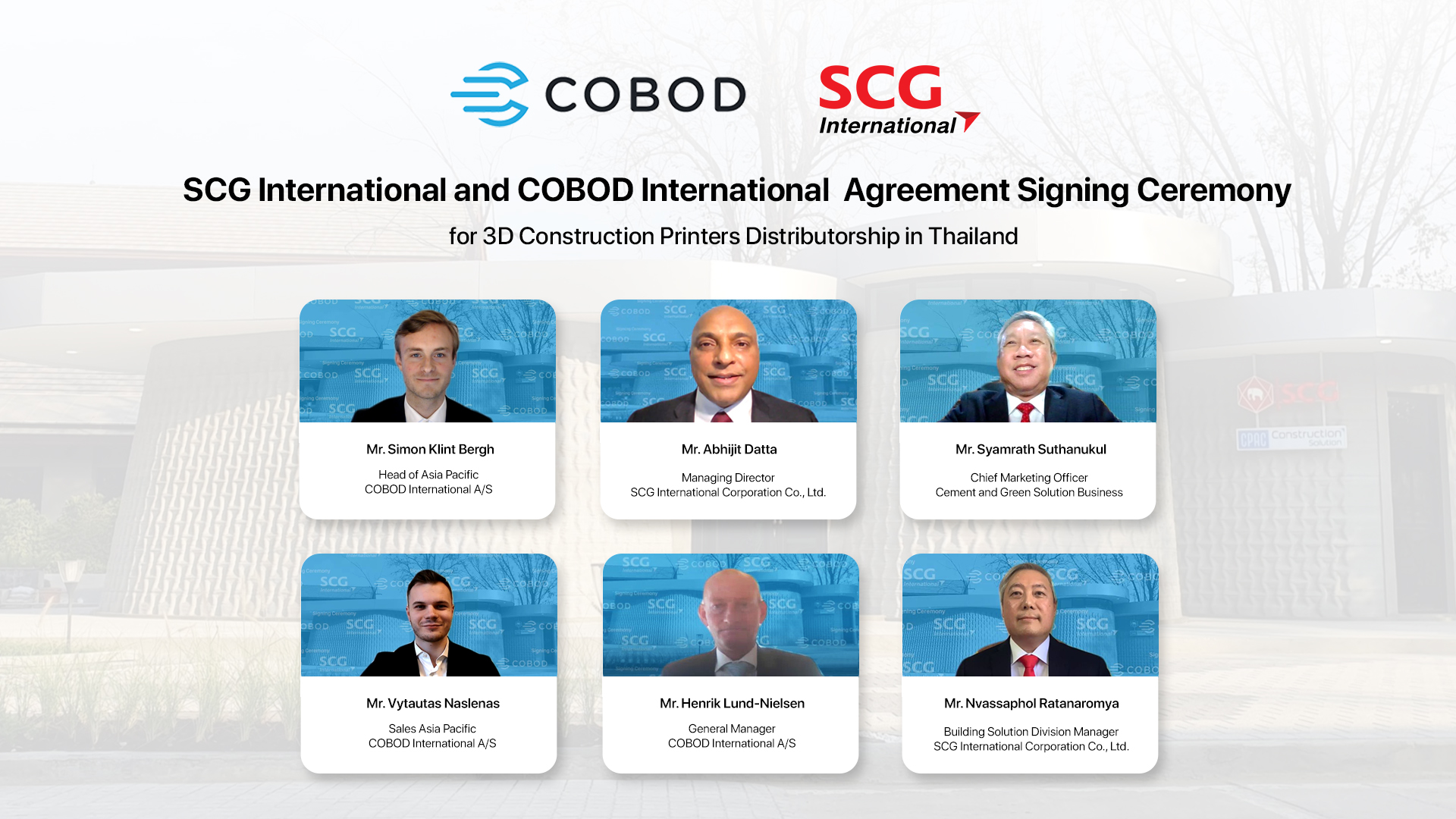
Elsewhere, Würth Additive Group has signed an agreement with Kurtz Ersa to distribute its Alpha 140 metal PBF-LB 3D printer and expand the suite of additive manufacturing technology offerings available from the company. The deal will reportedly broaden Würth Additive Group’s ability to support high-end production by bringing Kurtz Ersa’s proprietary Perfect Angle Printing technology to the American market.
High-speed resin 3D printer manufacturer Nexa3D has teamed up with manufacturing service provider AddiFab to launch a novel 3D printed injection mold tooling platform. The Freeform Injection Molding (FIM) platform is based on 3D printing technology that allows the user to 3D print complex injection mold tooling in a matter of hours, rather than weeks or months.
The platform’s tools are compatible with “most” thermoplastic materials, including reinforced high-performance feedstocks, to allow the molding of complex components that would be otherwise difficult or impossible to produce via conventional metal tooling techniques. Nexa3D will also supply its NXE 400 system to users of the FIM platform, while Addifab will supply its proprietary tooling resins and post-processing equipment.
The UK-based Manufacturing Technology Centre (MTC) has partnered with ultrasonic measurement products manufacturer Precision Acoustics to bring a complex ultrasonic measurement product to market via 3D printing.
Precision Acoustics approached the MTC for help launching a new anechoic test tank liner for measuring ultrasonic signals at frequencies below 1MHz, which required a mold to be produced in order to cast the absorber materials for the liner. The geometric complexity of the mold proved too challenging for convention techniques, and so the partners leveraged the MTC’s large build envelope 3D printer to produce a full-size liner template using simulated polypropylene material.
The anechoic test tank liner has since been brought to market as a result, with Precision Acoustics gaining knowledge of additive manufacturing that its says will benefit future projects.
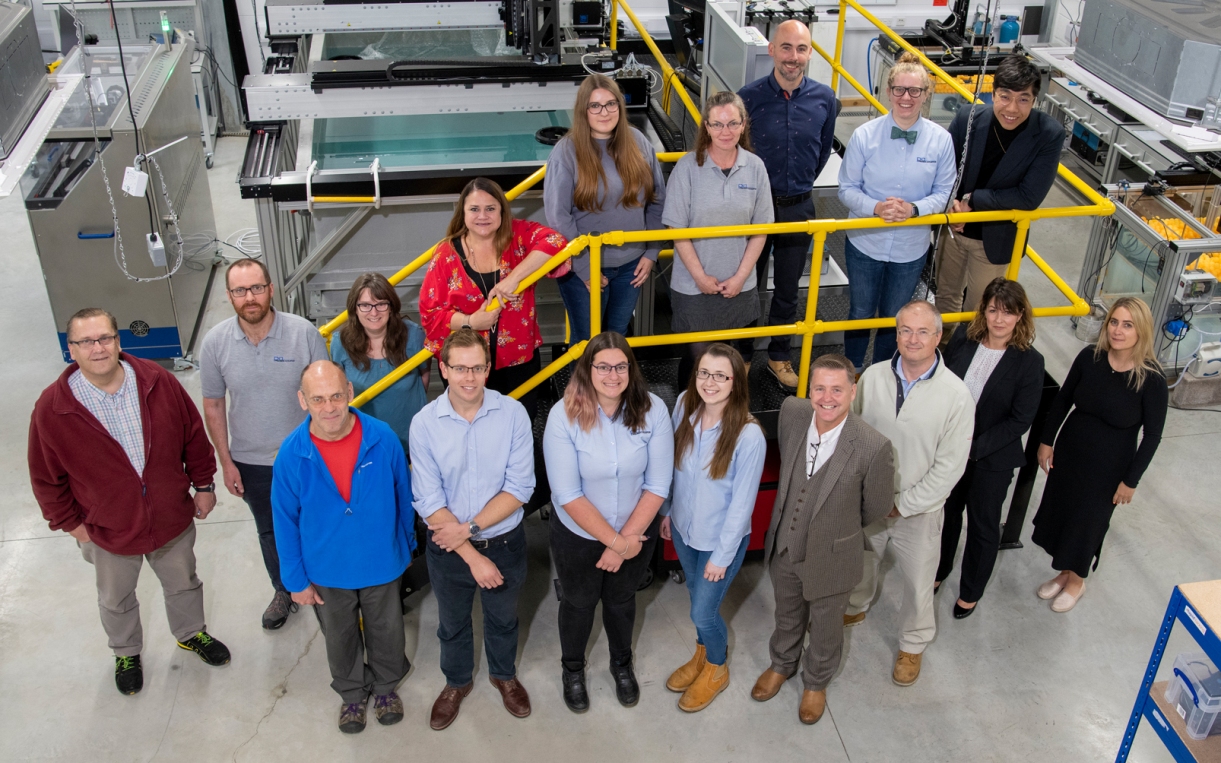
LCD 3D printer manufacturer Photocentric has named Core Technologie spin-off Additive Innovation as its exclusive sales partner for its 3D products in Germany, Austria, and Switzerland. Additive Innovation will distribute the firm’s Magna and Opus machines and as well as its flexible resin materials.
Photocentric, Additive Innovation and Core Technologie have also worked together to develop the Photocentric Additive Tool, an integrated software that allows 3D models to be read in from common CAD formats and prepared as an exact, intelligent B-Rep model.
3D printer manufacturer 3D Systems, meanwhile, has entered into a joint venture with Saudi Arabian industrial investment firm Dussur to expand the use of additive manufacturing within the country and further afield within the Middle East and Africa. The partnership aims to enable the development of Saudi Arabia’s domestic 3D printing production capabilities, and will initially focus on the energy sector before expanding into other industrial segments and healthcare applications.
“Our partnership with Dussur will accelerate the adoption of additive manufacturing in the region, enabling diversification of the Saudi Arabian economy,” said Jeffery Graves, President and CEO of 3D Systems. “While the energy segment will be one area of focus, a broad range of applications across industrial, aerospace, and healthcare segments will be addressed.
“We are excited about the partnership and believe it will provide a strong foundation within the Kingdom to expand local engineering and manufacturing and encourage green energy sources.”
Business updates from Sentinel, Shropshire 3D, Fictiv, Sinterit, and Stratasys
Moving onto business news now, and private equity firm Sentinel Capital Partners has announced the recapitalization of 3D printing design, software and services provider TriMech. While terms of the deal have not yet been disclosed, it is known that Sentinal partnered with TriMech’s management team and incumbent investor, The Halifax Group, which will remain as a minority investor, to take over management of the next phase of the firm’s growth.
“TriMech is strategically positioned to capitalize on favorable secular trends underpinning the 3D CAD and 3D printing markets,” said John Gurss, a principal at Sentinel. “With a talented and committed management team and a highly dedicated team of employees, we believe TriMech is well-positioned to continue its rapid growth, both organically and through acquisition. We are extremely excited about the opportunity to partner with the TriMech team.”
Elsewhere, 3D printer supplier Shropshire 3D has reached a new milestone in its mission to enable children across England and Northern Ireland to learn about additive manufacturing with the delivery of 3D printing and STEM products to its 275th school. Founded in 2014, the firm supplies MakerBot 3D printers to education settings in order to teach pupils about the application and potential of 3D printing and prepare them for careers within modern manufacturing.
“I am passionate about creating awareness and training to schools across England and Northern Ireland on the Makerbot printer range of products to assist teachers and learners in the development of engineering and design,” said Paul Brewer, Director of Shropshire 3D. “An aging workforce means that hundreds of thousands of skilled technicians and professional engineering roles will need replacing over the next 10 years.”
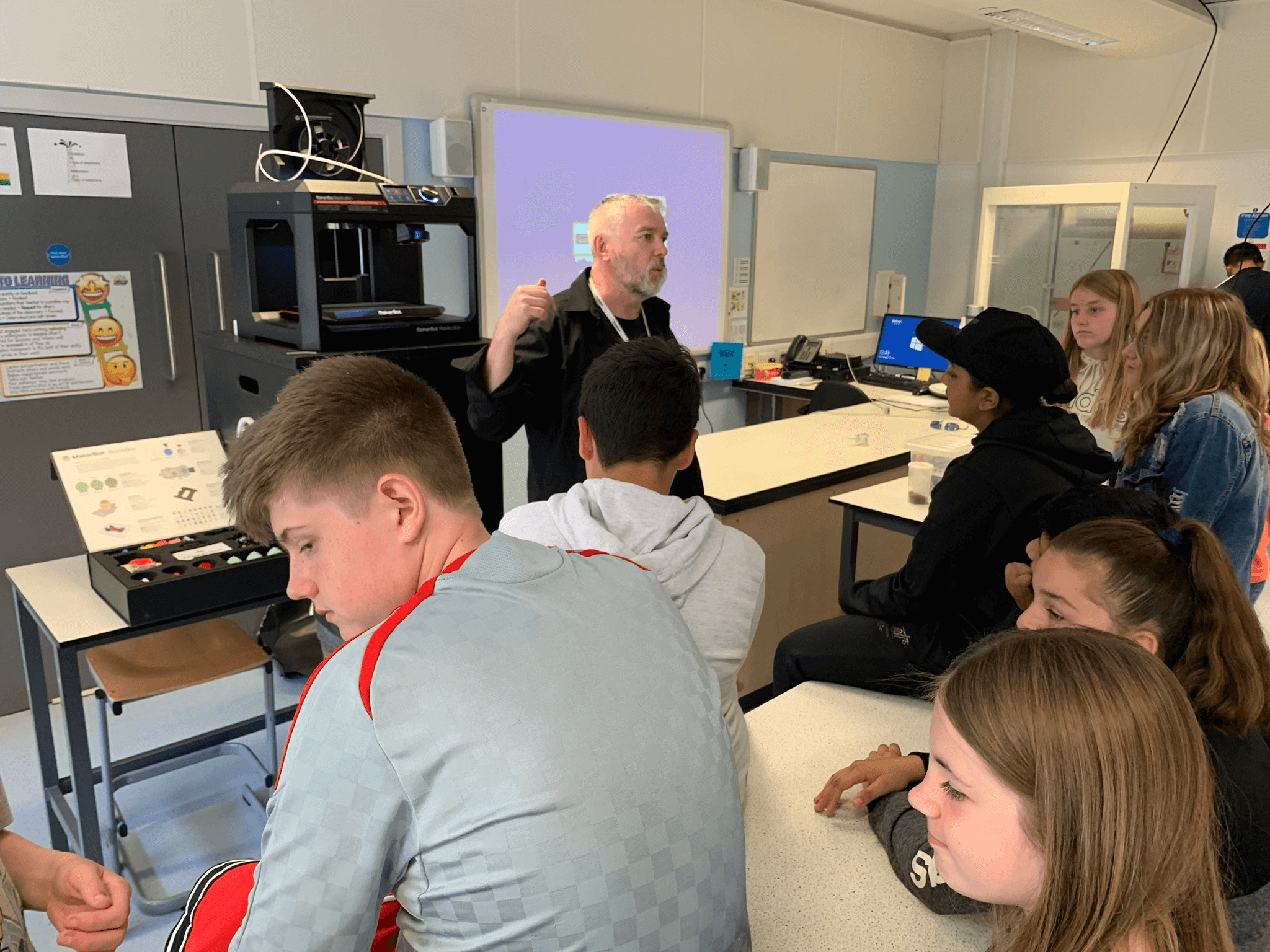
On-demand manufacturing platform Fictiv, meanwhile, has responded to the temporary Covid-19 lockdown in Shenzhen, China, by transitioning its customers’ affected workloads into other regions of Asia and the US in order to reduce the impact on orders. The firm successfully activated its failover systems in order to mitigate the business impact on its customers, demonstrating the benefits of moving away from legacy manufacturing workflows for manufacturers.
“If supply chain and engineering leaders are still wondering how to make meaningful progress to digitally transform their manufacturing operations, they need look no further than Fictiv,” said Jean Olivieri, Fictiv’s COO. “I am proud of the speed and agility our teams and technology delivered for our customers in response to the Shenzhen disruption and am confident we are prepared for whatever comes next.”
Polish 3D printer manufacturer Sinterit has also made several recent business announcements, having signed cooperation agreements with three new partners and opened its new facility in the US. The firm will be represented in the US by new resellers Impac System Engineering in the South, Vision Miner in the West, and Master Graphics in the Midwest.
The firm has also opened a new warehouse facility on the East Coast which will help it to accelerate delivery times to its target customers, and “facilitate formalities to international transport.”
The last of this week’s business updates comes from 3D printer manufacturer Stratasys, which has made a slew of announcements regarding new resellers, partnerships, and an online e-store facility. First off, the firm has strengthened its network of partners in France with the appointment of three specialist 3D printing resellers for the region: Cylaos, Dome Technic Dentaire (DTD), and Halbronn. With the new partners, Stratasys hopes to ensure greater agility and maintain premium quality sales, support, and service for its French customers.
The company has also bolstered its ability to provide technical support to French customers through a partnership agreement with industrial maintenance firm Fives. Stratasys and its French resellers will be able to leverage Fives’ 600-strong nationwide team of maintenance technicians to solve technical issues and maintain machine uptime.
In addition to extending its partner network in France, Stratasys has launched a dedicated e-store to allow faster and easier ordering of materials and consumables for French customers.
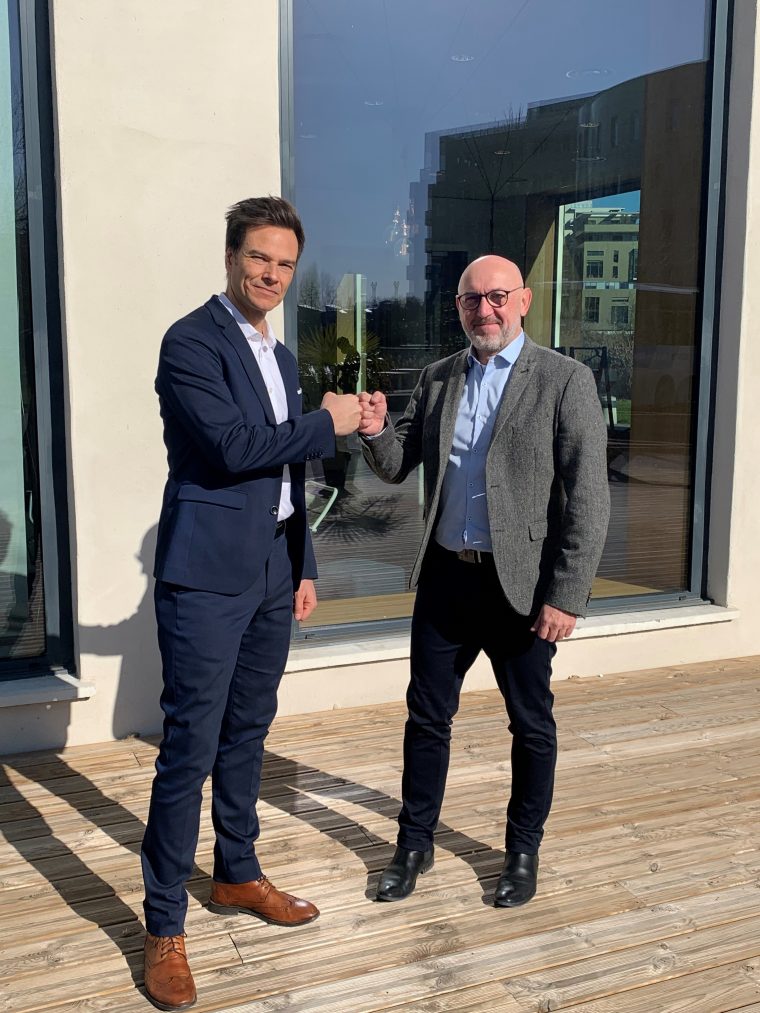
Construction 3D printing news
Onto novel construction 3D printing news now, and a new “Sunflower Village” is being brought to life by additive manufacturing, featuring a central communal area and 19 surrounding houses. The project is the brainchild of architect Valentino Gareri, technology and wellness firm 6Sides, and real estate company Delos, and aims to provide a design template for efficient and sustainable housing communities in favor of urban developments.
Each of the single-level houses will be 3D printed using a concrete 3D printer that remains stationary and rotates to the next lot to print the neighboring house. Each home is shaped for efficiency, with angled roofs to optimize the homes for solar and rainwater collection, and will be fitted with Delos’ holistic in-home wellness platform to enhance air purification, water filtration, and lighting that mimics natural daylight.
While the Sunflower Village remains a demonstrative concept for now, the designers hope it will appeal to developers around the world as a template for other town facilities like hospitals, schools, government offices or recreational areas.
Elsewhere, global humanitarian organization Alight has appointed renowned architect and designer Ronald Rael as its inaugural Alight Artist in Residence. Rael is currently involved in a project to establish a 3D printing system to allow LGBTIQ asylum-seekers to earn an income through ceramics while on their migration journey, and through his residency with Alight will further his research and development of 3D printing using Adobe in order to create sustainable low-cost housing.
During his residency, Rael will also work as an advisor to La Fabrica Project in El Salvador, an entrepreneurial training program that works to provide co-created 3D printed projects for vulnerable youth that can be commercialized and pave the way to stable employment.

New materials from Braskem
Moving onto materials, and Brazilian petrochemical firm Braskem has expanded its 3D printing materials portfolio to include polyethylene (PE) and glass fiber reinforced polypropylene (PP) filaments. According to the firm, the materials are easier to print, have less warpage, minimal shrinkage, and better interlayer adhesion than other comparable products on the market.
“Unlike other materials on the market, Braskem’s PE is perfect for packaging and consumer applications and can be used anywhere HDPE would normally be used, while our new glass fiber reinforced PP has added strength and durability which makes it a great solution for automotive, aerospace, medical, robotic, and industrial applications,” said Jason Vagnozzi, Braskem’s Commercial Director of Additive Manufacturing.
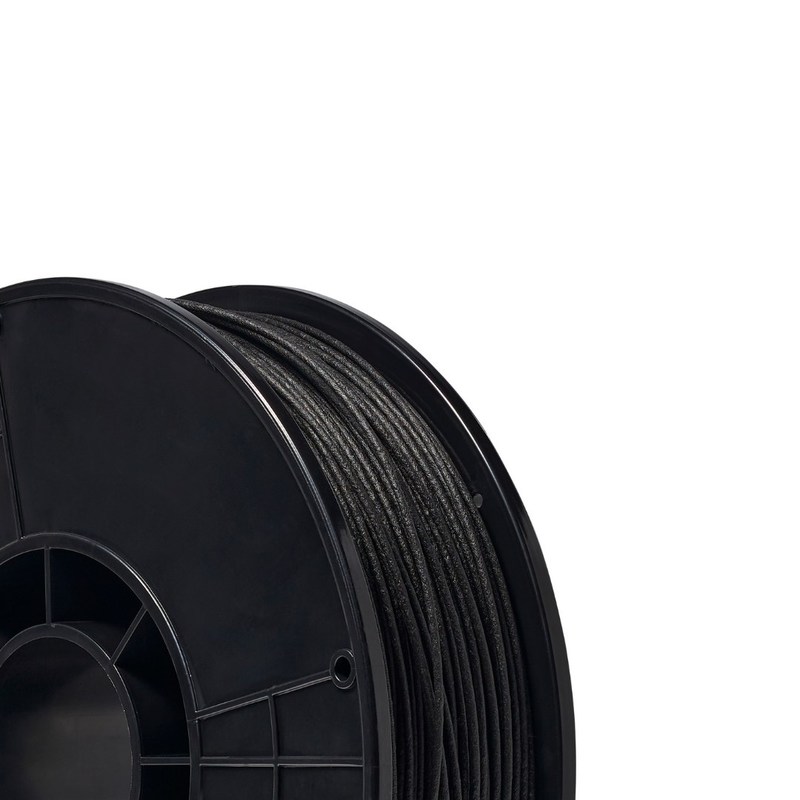
Danish AM market thrives
The latest annual AM Report 2022 from the Danish AM Hub has revealed more and more Danish manufacturing companies are using 3D printing technology. According to the report, the use of additive manufacturing has increased “steadily” from 2018 to 2021, with a third of manufacturing companies using 3D printing technology last year.
“It is absolutely positive that more Danish companies are embracing the technology and thus are able to create a production that reduces the amount of material used, reduces waste and transport, and ends up with more custom-made, circular, and simply better products and items,” said Frank Rosengreen Lorenzen, CEO of Danish AM Hub. “Overall, we get a smarter production.
“And this year’s survey clearly shows that we are successful in our efforts to spread AM technology in Denmark.”
New 3D printing applications
French car manufacturer Peugeot has teamed up with multinational printing firm HP to create a new line of 3D printed accessories for its 308 model, available in black or an eye-catching mint green. The new accessories include a 3D printed cupholder, sunglasses holder, and phone holder all produced in Ultrasint TPU, which will soon be available to buy from Peugeot’s Lifestyle shop.
The car manufacturer has also hinted that 3D printing technology could be used on more technical parts of its next-generation road cars in the future.
And finally, 3D printing technology has saved the life of a 25 year-old great hornbill bird with cancer of the beak at ZooTampa in Florida. The zoo drafted in a team of hospital physicians, biomedical engineers, and veterinary specialists from two universities to surgically remove the tumor from the bird’s beak and replace it with a custom-designed 3D printed prosthetic produced by resin-based 3D printer manufacturer Formlabs.
According to the experts, the procedure is the first of its kind on a hornbill in the US, and just the second in the world.
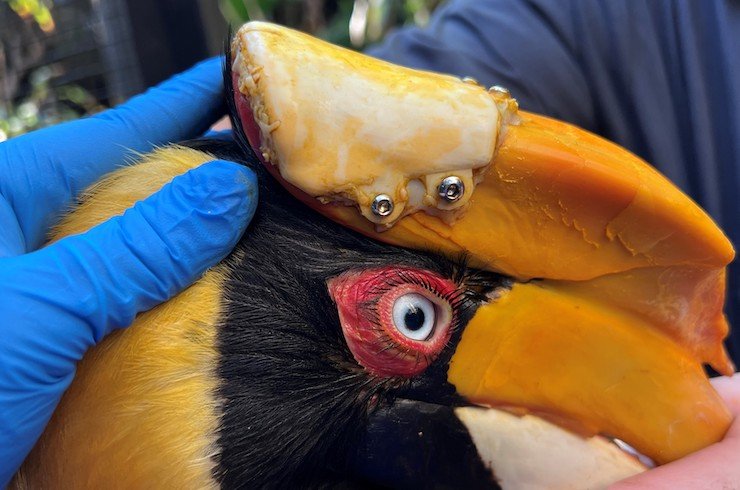
Subscribe to the 3D Printing Industry newsletter for the latest news in additive manufacturing. You can also stay connected by following us on Twitter and liking us on Facebook.
Looking for a career in additive manufacturing? Visit 3D Printing Jobs for a selection of roles in the industry.
Subscribe to our YouTube channel for the latest 3D printing video shorts, reviews and webinar replays.
Featured image shows the 3D printed prosthetic hornbill beak with the sliced logo.



